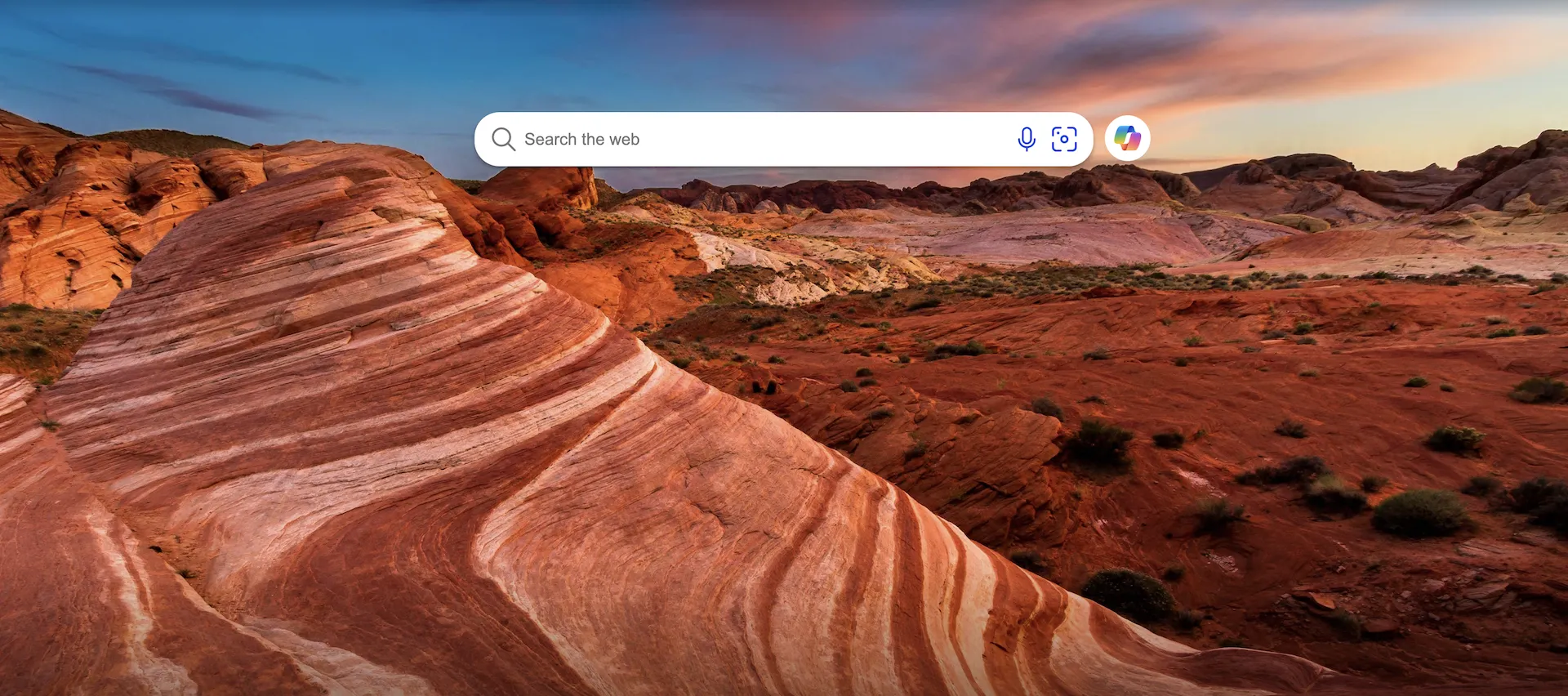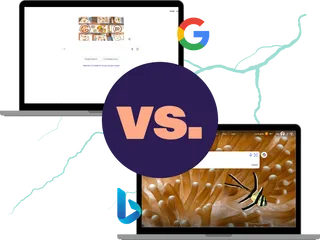
Should You Be Marketing on Bing?
Bing, Microsoft’s search engine, is a web search platform that processes billions of monthly queries. Like Google, who’s obviously the big fish in the search pond, Bing uses algorithms to deliver relevant results and provides business advertising opportunities through Bing Ads. Although Google Ads reigns supreme in search volume, Bing Ads are a great alternative, particularly for budget-conscious businesses targeting specific demographics.
Are Bing Ads Worth It
Bing sometimes gets a bad rap, but like any marketing strategy or platform, it has its pros and cons. With a solid understanding of how Bing Ads works and how to allocate your ad budget, you can potentially increase your reach and usurp more search market share. Let’s break down its value and how it differs from Google Ads so you can make an informed decision.
Exploring the Pros and Cons of Bing Ads
Bing Ads are neither inherently bad or good. You have to look at the pros and cons to determine if what the platform offers aligns with your brand and goals.

Pros:
- Winning over lower competition
Bing Ads boasts a considerably lower barrier to entry compared to Google Ads. They translate to lower costs-per-click (CPC) and increased ad visibility so your brand can shine brighter within search results. The fact that your competitors probably aren’t on here is a good thing! - Targeting a treasure trove of tech-savvy users
Bing’s user base skews toward a market segment known for its tech adoption and higher disposable income. It’s a potential gold mine for businesses looking to target tech enthusiasts or those in need of premium products or services. - Reaching beyond the Google horizon
Bing Ads extends your reach past Google’s grasp, syndicating your ads across Bing, Yahoo, MSN, AOL and a whole network of Microsoft partner sites. Doing this expands your potential customer pool and diversifies your brand exposure. Google isn’t everything. - Capitalizing on voice search
Bing Ads integrates seamlessly with Microsoft’s virtual assistant Cortana, as well as Xbox and Amazon’s Alexa. On Bing, your brand is positioned to be heard by users who prefer a voice-activated search experience. A lot of Bing search users don’t even know they’re using Bing!

Cons:
- Reaching fewer people overall
Bing’s global search market share pales compared to Google’s. It helps to weigh the trade-off between a more targeted reach with Bing Ads and the broader exposure offered by Google Ads. Ultimately, quality is better than quantity, but there’s certainly something to be said about the power of a larger reach. - Paying for fewer on-platform features
Even though Bing Ads offers core functionalities—and takes its user interface cues directly from Google Ads—it may lack some of the advanced features and campaign customization opportunities available on Google Ads. If you’re familiar with Google Ads and know which features you rely on most, be sure to check that Bing Ads has comparable capabilities. - Accessing fewer third-party integrations
If your marketing workflow relies heavily on third-party marketing automation or analytics tools, Bing Ads may require additional workarounds to integrate seamlessly. Most of the major players such as Salesforce and Adobe can integrate, but even then, you may have to pay for the resources to make it happen, adding to the cost of your ad strategy.
Understanding the Value of Bing Ads Campaigns
Bing Ads can be a valuable addition to your marketing strategy if your target audience aligns with Bing’s user demographics. The lower CPC can lead to cost-effective campaigns and higher conversion rates for particular audiences can boost your return on investment.
That said, for most brands, relying solely on Bing Ads is not advisable. Embrace them if:
- You have a limited ad spend and want to stretch it further
- Your consumer base consists of tech enthusiasts or users with a higher buying power
- You want to explore voice search advertising opportunities
Approach Bing Ads cautiously if:
- Your target market is geographically diverse, and a global reach is necessary
- You require a robust suite of advanced features and customization options
- Your marketing operations heavily rely on third-party software integrations

Reviewing the Differences Between Google and Bing
Between the two search engines, Google Ads boasts a more extensive user base and ad placement options. Bing Ads, on the other hand, shows higher engagement rates for certain audience characteristics or niches. The CPC on Bing also tends to be lower, making it a more budget-friendly option for advertisers.
The ideal scenario? Use both platforms strategically! Running ad campaigns concurrently on both Google and Bing allows you to leverage the strengths of each. Bing Ads can be a cost-effective way to target a specific user profile, while Google Ads can broaden your reach and capture a wider audience.
Meet Your New Search Ads Partner
Are Bing ads worth it? In short, “it depends!” There’s no one-size-fits-all answer in marketing so you have to weigh the pros and cons and make a smart decision that makes sense for your brand.
At EMB, our approach is equal parts creative and methodical, letting the data direct our marketing decision-making. In order to tell you if Bing Ads are right for you, we would need to do our due diligence, which starts with our Discovery Phase. Interested?